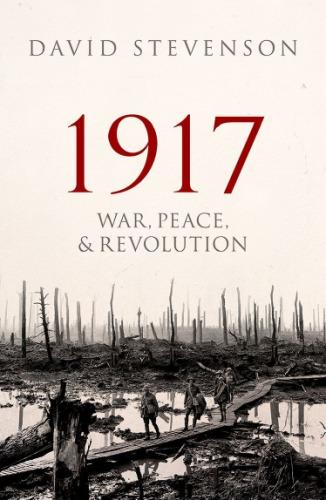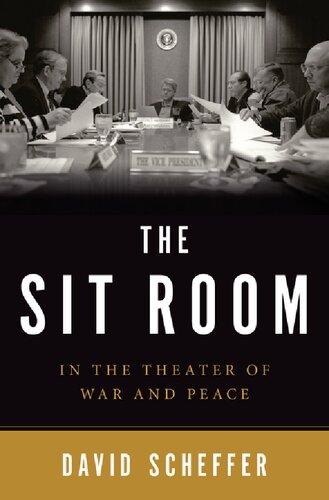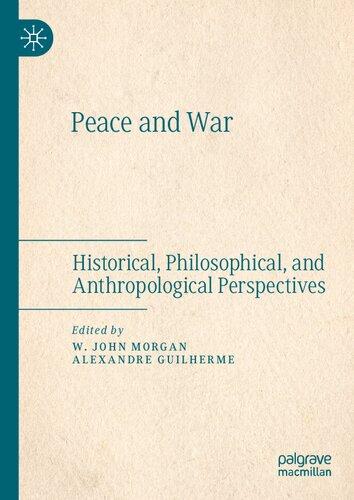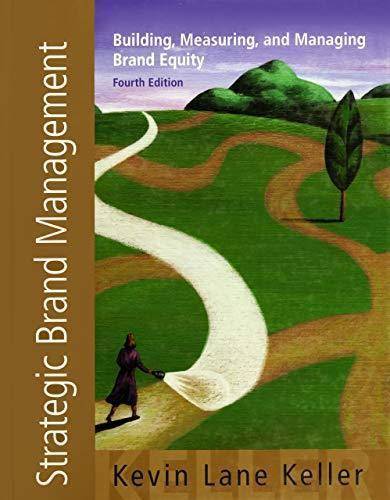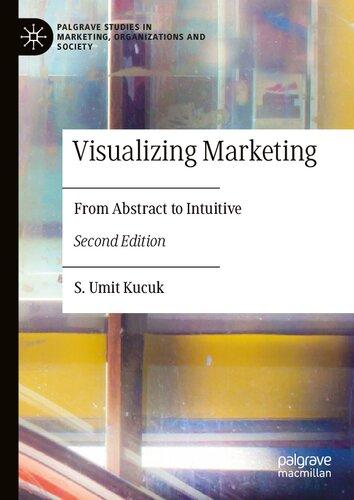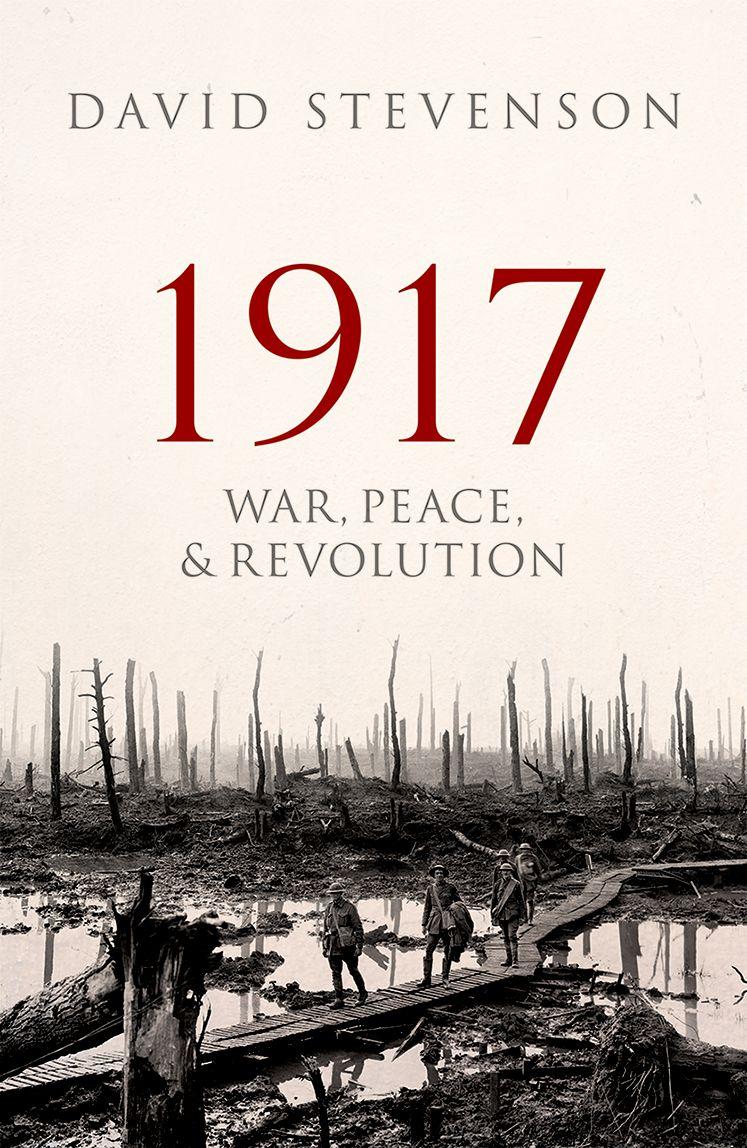List of Abbreviations
AA Auswärtiges Amt (German Foreign Ministry)
AC Austen Chamberlain papers, Cadbury Research Library, Birmingham
ADM Admiralty papers, TNA
AEF American Expeditionary Force
AFGG Les Armées françaises dans la Grande Guerre (Paris, 1922–37) [French official history]
AOK Armee Oberkommando (Austrian-Hungarian High Command)
AR Akten der Reichskanzlei, Bundesarchiv, Berlin
BA-MA Bundesarchiv-Militärarchiv, Freiburg-im-Breisgau
BEF British Expeditionary Force
BL British Library
CAB Cabinet papers, TNA
CAS Chief of Admiralty Staff
CFC Conjoint Foreign Committee
CGS Chief of the General Staff
COS Chief of Staff
CND Council of National Defense
CPI Committee on Public Information
CQG Grand quartier-général
DAMS Defensive Arming of Merchant Ships
DVP Deutsche Vaterlandspartei
EEF Egyptian Expeditionary Force
EZF English Zionist Federation
FO Foreign Office papers, TNA
FRB Federal Reserve Board
FRUS 1917 Foreign Relations of the United States 1917
FRUS LP FRUS The Lansing Papers, 1914–1920 (1939)
GAC Groupe d’armées du centre
GAN Groupe d’armèes du nord
GAR Groupe d’armées de la rupture
GHQ General Headquarters (British High Command)
GNP Gross National Product
GOI Government of India
GQG Grand Quartier-général (French High Command)
HNKY Hankey papers, Churchill Archives Centre, Cambridge
INC Indian National Congress
LGP Lloyd George papers, Parliamentary Archives, London
LHCMA Liddell Hart Centre for Military Archives, King’s College London
LOC Library of Congress, Washington
MECA Middle East Centre Archive, St Antony’s College, Oxford
MEF Mesopotamia Expeditionary Force
MOFB James Edmonds, Military Operations, France and Belgium 1914–1918 (1933–48) [British official history]
MOI James Edmonds, Military Operations: Italy, 1915–1919 (1949)
MOM Cyril Falls, Military Operations: Macedonia (1933–5)
MRC Military-Revolutionary Committee
MT Ministry of Transport papers, TNA
NARA National Archives and Record Administration, Washington DC
NLS National Library of Scotland, Edinburgh
NMM National Maritime Museum, Greenwich
OHL Oberste Heeresleitung (German High Command)
ÖULK Edmond Glaise von Horstenau and Rudolf Kiszling (eds), Ősterreich-Ungarns Letzter Krieg, 1914–1918 (1929–35) [Austrian official history]
PRO Public Record Office papers, TNA
PSI Partito Socialista Italiano
PWW Arthur Link (ed.), The Papers of Woodrow Wilson (1966–94)
RMA Reichsmarineamt (German Navy Ministry)
SFIO Section française de l’Internationale ouvrière (French Socialist Party)
SHAT Service historique de l’armèe de terre,Vincennes
SPD Sozialdemokratische Partei Deutschlands (German Socialist Party)
TNA The National Archives, Kew
WK Reichsarchiv, Der Weltkrieg 1914 bis 1918 (1925–56) [German official history]
WO War Office papers, TNA
WPC War Policy Committee
List of Principal Personalities
Unless otherwise indicated, the responsibilities indicated are those held by the relevant individual during 1917. Please refer to list of abbreviations.
Albert I King of the Belgians
Alekseyev, Mikhail Russian CGS (until May)
Arz von Strauβenberg, Arthur Austro-Hungarian CGS
Alexander, David President, Board of Deputies of British Jews
Allenby, Sir Edmund
Alston, Beilby
Amery, Leo
British commander in Egypt/Palestine (from June)
British chargé d’affaires in China
British Unionist MP and member of the Lloyd George government
Aosta, Duke of Italian Third Army commander
Armand, Count Abel
French intelligence officer and participant in Armand–Revertera conversations
Asquith, Herbert Henry British Liberal leader; prime minister (1908–16)
Augusta Victoria, Queen Wife of Wilhelm II
Bacon, Reginald Commander, Dover Patrol
Badoglio, Pietro Commander, Italian IV Corps
Baker, Newton Diehl US war secretary
Balfour, Arthur James British Foreign Secretary
Barbosa, Ruy
Brazilian Senator
Barnes, George British Labour politician and War Cabinet member
Barrère, Camille French ambassador in Italy
Barthou, Louis French foreign minister (October–November)
Bauer, Hermann Commander of German High Seas Fleet U-boats
Bauer, Max
Beatty, Sir David
OHL representative in Berlin
Commander, British Grand Fleet
Beliaev, Mikhail Tsarist Russian war minister
Below, Otto von Commander of Austro-German Fourteenth Army
Benedict XV (Giaccomo della Chiesa) Pope
Benson, William Shepherd
US Chief of Naval Staff
Bernstorff, Joachim-Heinrich, Count von German ambassador in the United States
Besant, Annie
Head of Indian Home Rule League
Bethmann Hollweg, Theobald von German chancellor (until July)
Bissolati, Leonida
Bliss, Tasker Howard
Bonar Law, Andrew
Boroević, Svetozar
Boselli, Paolo
Brandeis, Louis
Braz, Wenceslau
Briand, Aristide
Broqueville, Charles de
Brugère, Joseph
Brusilov, Aleksei
Bryan, William Jennngs
Buchanan, Sir George
Burián, Istvan
Cabot Lodge, Henry
Cadorna, Luigi
Caillaux, Joseph
Italian socialist and minister
US Army Deputy COS; then COS (from September)
British Chancellor of the Exchequer and Unionist leader
Austro-Hungarian commander on Isonzo Front
Italian premier (until October)
US Supreme Court Justice
Brazilian president
French premier (until March)
Belgian premier
Chair of Nivelle offensive inquiry commission
Commander, Russian South-West Front; then CGS (May–July)
US Secretary of State (1913–15)
British ambassador in Russia
Austro-Hungarian foreign minister (1915–16)
Chair, Senate Foreign Relations Committee (from March)
Italian commander-in-chief
Former French premier
Cambon, Jules Secretary-general, French Foreign Ministry
Cambon, Paul
French ambassador in Britain
Capelle, Eduard von German navy secretary
Capello, Luigi
Italian Second Army commander
Carranza,Venustiano Mexican president
Carson, Sir Edward British First Lord of the Admiralty (until July)
Castelnau, Curières de French Army Group commander
Caviocchi, Alberti Commander, Italian XXVII Corps
Cecil, Lord Robert Parliamentary under-secretary, British Foreign Office
Chamberlain, Austen
British Secretary of State for India (until July)
Charteris, Sir John Chief Intelligence Officer, GHQ, BEF
Chelmsford,Viscount Viceroy of India
Chernov,Viktor
Socialist Revolutionary leader; Russian agriculture minister
Chkheidze, Nikolai Menshevik; Chair of Petrograd Soviet
Chiozza Money, Leo British Shipping Ministry official
Churchill, Winston British minister of munitions (from July)
Clemenceau, Georges
French premier and war minister (from November)
Constantine I King of Greece
Coppée, Baron Evence
Belgian industrialist, intermediary between von der Lancken and Briand
Craddock, Reginald Member of Indian Executive Council
Cramon, August von German plenipotentiary at AOK
Creel, George
Director of Committee on Public Information (United States)
Curzon, George Nathaniel Lord British War Cabinet Member
Czernin, Ottokar Count
Austro-Hungarian foreign minister
D’Alenson, Colonel Chef de cabinet to Nivelle
Dall’Olio, Alfredo Italian armaments minister
Dan, Fyodor Menshevik and leading member of Petrograd Soviet
Daniels, Josephus
US navy secretary
Davidson, Sir John BEF GHQ Chief of Operations
Delmé-Radcliffe, Charles British military attaché in Italy
Derby, Edward Stanley, Earl of British Secretary of State for War
Dering, Herbert
De Salis, John
Devonport, Lord
Dewrawangse, Prince
Diaz, Armando
Duan Qiriu
Doumergue, Gaston
Duff, Sir Alexander
Eckhardt, Heinrich von
Enver Pasha
Erzberger, Mathias
Evert, Aleksei
British minister in Siam
British minister to the Vatican
British Food Controller
Siamese foreign minister
Italian commander-in-chief (from October)
Chinese premier (previously war minister)
French colonial minister (until March)
Head of British Admiralty AntiSubmarine Division
German minister in Mexico City
Turkish war minister
Deputy leader, German Centre Party
Russian Western Front commander
Falkenhayn, Erich von German CGS (1914–16)
Feisal, Prince
Franchet d’Espérey, Louis
Franz Joseph I
Freycinet, Charles de
Galt, Edith
Gandhi, Mohandas Karamchand
Gasparri, Cardinal Pietro
Gatti, Angelo
Geddes, Sir Eric
George V
Gerard, James Watson
Giardino, Gaetano
Giolitti, Giovanni
Gokhale, Gopal Krishna
Golitsyn, Prince Nikolai
Goubet, Lt. Col.
Gough, Sir Hubert
Graham, Ronald
Son of Sharif Hussein
Commander, French Northern Army Group
Austro-Hungarian emperor (1848–1916)
Former French premier and minister in Briand government
Second wife of Woodrow Wilson
Indian nationalist leader
Vatican Secretary of State
Italian army staff historian
British First Lord of the Admiralty (from July)
British king
US ambassador to Germany
Italian war minister
Former Italian premier
Indian nationalist leader
Last Tsarist Russian premier
Head of French General Staff intelligence (Second Bureau)
British Fifth Army commander
British Foreign Office official
Grey, Sir Edward
British Foreign Secretary (1905–16)
Grimm, Arthur Swiss socialist
Guchkov, Aleksandr Russian Octobrist leader; war minister (March–May)
Gurko,Vasily
Acting Russian CGS (1916–17)
Haig, Sir Douglas BEF commander-in-chief
Hall, Sir Reginald British Director of Naval Intelligence
Hankey, Maurice Secretary to British War Cabinet
Harding, William Chair, US FRB Board of Governors
Hardinge, Sir Arthur British ambassador in Spain
Hardinge of Penshurst, Baron Viceroy of India (to 1916); permanent under-secretary, British Foreign Office
Harington, C. H. COS to Plumer
Helfferich, Karl German secretary for the interior (until October)
Henderson, Arthur British War Cabinet member and Labour leader
Henderson, Reginald British Admiralty official
Herbillon, Emile Liaison officer between Poincaré and GQG
Hertling, Georg von German chancellor (from September)
Hindenburg, Paul von German CGS
Hoffmann, Robert Swiss foreign minister
Hohenlohe-Schillingsfürst, Prince Gottfried von Austro-Hungarian ambassador in Germany
Holtzendorff, Henning von German Chief of the Admiralty Staff
Hötzendorff, Franz Conrad von Austro-Hungarian CGS; from March commander on the Tyrol front
House, Edward Mandell Adviser to Woodrow Wilson
Houston, David Franklin US agriculture secretary
Hughes, Charles Evans Republican presidential candidate, 1916 Hussein bin Ali, Sharif Ruler of Mecca
Jagow, Gottlieb von German foreign minister (1913–16)
Jellicoe, Sir John British First Sea Lord Joffre, Joseph French CGS/commander-in-chief (1911–16)
Jusserand, Jules French ambassador in the United States
Kamenev, Lev Bolshevik Central Committee member
Karl I
Kato, Count Komei
Kerensky, Aleksandr
Khabalov, Georgi
Kiggell, Sir Launcelot
Kitchener, Lord
Knox, Alfred
Kolyschko, Josef
Kornilov, Lavr
Austrian emperor
Japanese foreign minister (1914–15)
Justice minister in first Russian Provisional Government; then (from May) premier/war minister
Commander, Petrograd Military District
BEF CGS
British Secretary of State for War (1914–16)
British liaison officer in Russia
Russian representative in talks with Erzberger
Commander, Russian Eighth Army, then commander-in-chief (July–September)
Krafft von Delmensingen, Karl COS to Austro-German Fourteenth Army
Kuhl, Hermann von CGS to Rupprecht of Bavaria
Kühlmann, Richard von German foreign minister (from July)
Kuhn, Joseph Head of War College Division
Lancken-Wakenitz, Baron Oscar von der Head of the Political Department of the German occupation administration in Brussels
Lansdowne, Lord
Lansing, Robert
Unionist peer and former Foreign Secretary
US Secretary of State
Lema, Marqués de Spanish foreign minister
Long, Walter
Lenin,Vladimir
British colonial secretary
Russian Bolshevik leader
Leslie, Norman British Shipping Ministry official
Levetzow, Magnus von Chief of Operations, German High Seas Fleet
Li Yuan-hang
Chinese president
Lloyd George, David British prime minister
Lockhart, Robert Bruce
Long, Walter
British Consul General in Moscow
British colonial secretary
Loβberg, Friedrich von German Fourth Army COS
Ludendorff, Erich German First Quartermaster-General
Lvov, Prince Georgy Premier, First Russian Provisional Government
Lyautey, Hubert French war minister
McAdoo, William Gibbs US treasury secretary
MacDonough, George British Director of Military Intelligence
McKenna, Reginald British Chancellor of the Exchequer (1914–16)
MacLay, Sir Joseph British Shipping Controller
McMahon, Sir Henry British High Commissioner in Egypt
MacMullen, Norman Officer in BEF GHQ Operations Section
Mangin, Charles Commander, French Tenth Army
Margerie, Pierre de Political Director, French Foreign Ministry
Martin, William Director of Protocol, French Foreign Ministry
Maude, Sir Frederick British commander in Mesopotamia
Mazel, Olivier Commander, French Fifth Army
Mérode, Countess Pauline de Intermediary between von der Lancken and Briand
Messimy, Adolphe Former French war minister
Meston, Sir James Lieutenant Governor of United Provinces (India)
Metaxas, Ioannis Greek CGS
Michaelis, Georg German chancellor (July–September)
Micheler, Alfred Commander, French Breakthrough Army Group
Mikhail, Grand Duke Brother of Nicholas II
Milyukov, Pavel Russian Kadet leader; foreign minister (March–May)
Milner, Alfred Lord British War Cabinet member
Moltke the Younger, Helmuth von German CGS (1906–14)
Monro, Sir Charles Commander-in-chief, Indian Army
Montagu, Edwin British Secretary of State for India (from July)
Montefiore, Claude President, Anglo-Jewish Association
Motono, Baron Ichiro Japanese foreign minister
Müller, Georg von
Müller, Lauro
Murray, Sir Archibald
Neilson, J. F.
Nicholas II
Nitti, Francesco
Nivelle, Robert
Orlando,Vittorio
Pacelli, Eugenio
Page, Walter Hines
German Chief of the Naval Cabinet
Brazilian foreign minister (until May)
British commander in Egypt/Palestine (until June)
British liaison officer in Russia
Russian emperor
Italian finance minister (from October)
French commander-in-chief, Western Front (Dec. 1916–May 1917)
Italian minister of the interior; then premier (from October)
Papal nuncio in Munich
US ambassador in Britain
Payer, Friedrich von Deputy to Hertling
Paléologue, Maurice
Peçanha, Nila
French ambassador in Russia
Brazilian foreign minister (from May)
Pershing, John J. Commander, AEF
Pétain, Philippe Commander, French Army Group Centre, then CGS (April), then French commander-in-chief, Western Front (from May)
Picot, François Georges-
Plumer, Sir Herbert
Poincaré, Raymond
French diplomat and colonial lobbyist
Commander, British Second Army
French president
Polk, Frank Counsellor, US State Department
Porrò, Carl Deputy to Cadorna
Protopopov, Aleksandr
Tsarist Russian interior minister
Rama VI King of Siam
Rasputin, Grigori
Rawlinson, Sir Henry
Redfield, William Cox
Reinsch, Paul
Renouard, Georges
Revertera, Count Nikolaus
Ribot, Alexandre
Russian faith healer and mystic
Former commander of British Fourth Army
US commerce secretary
US minister to China
Head, French GQG Third Bureau
Austrian participant in Armand–Revertera conversations
French finance minister, then premier (March–September)
Riezler, Kurt Secretary to Bethmann Hollweg
Rittikh, Aleksandr Tsarist Russian agriculture minister
Robertson, Sir William British CIGS
Rodd, Sir Rennell British ambassador in Italy
Rodzianko, Mikhail Speaker of Russian Duma
Rothschild, Baron Walter British banker and Zionist supporter
Runciman, Walter President of the British Board of Trade (to December 1916)
Rupprecht of Bavaria, Crown Prince German Army Group commander
Ruszky, Nikolai Russian Northern Front commander
Sacher, Harry Manchester-based journalist and Zionist
Sakharov,Vladimir Russian Romanian Front commander
Samuel, Sir Herbert President of the British Local Government Board (1914–15)
Sarrail, Maurice Commander, Allied armies in Macedonia
Sassoon, Siegfried British army officer
Scheer, Reinhard Commander, German High Seas Fleet
Schlieffen, Alfred von German CGS (1890–1905)
Schulenburg, Friedrich Count von der COS to Crown Prince Wilhelm
Scott, Charles Prestwich Editor, The Manchester Guardian
Scott, Hugh US CGS
Sims, William
Head of US naval mission to UK
Sixte de Bourbon, Prince Intermediary in spring 1917 peace contacts
Smuts, Jan-Christiaan
Former South African defence minister; British War Cabinet member
Sokolow, Nahum Zionist activist, based in London
Sonnino, Sidney Italian foreign minister
Spiers (from 1918 Spears), Edward British liaison officer in France
Spring-Rice, Sir Cecil British ambassador in the United States
Stone, William Chair, Senate Foreign Relations Committee (to March)
Stürmer, Boris Russian premier and foreign minister (1916)
Sun Yat-sen Chinese nationalist leader
Sykes, Sir Mark British MP, officer, and diplomat
Taft, William Howard
Tchlenov, Yehiel
Tereschchenko, Mikhail
Thomas, Albert
Tilak, Bal Gangadhar
Tirpitz, Alfred von
Trepov, Aleksandr
Trotsky, Leon
Tsereteli, Irakli
Tumulty, Joseph
Valentini, Rudolf von
Venizelos, Eleutherios
Verkhovsky, Aleksandr
Villa, Pancho
Villalobar, Marqués de
Vittorio Emmanuel III
Waldstätten, Alfred von
Webb, Sir Richard
Weizmann, Chaim
Wetzell, Georg
Wilhelm, Crown Prince
Wilhelm II
Wilson, Woodrow
Wise, Rabbi Stephen
Wiseman, William
Wolf, Lucien
Xavier de Bourbon, Prince
Yrigoyen, Hipólito
Yuan Shikai
US president (1909–13)
Russian Zionist leader
Russian foreign minister (May–November)
French socialist; armaments minister
Indian nationalist leader
German Navy Secretary (1897–1916)
Penultimate tsarist Russian premier
Chair of Military-Revolutionary Committee (September–November)
Menshevik; Russian minister of posts and telecommunications (May–August)
Secretary to Woodrow Wilson
German Chief of Civil Cabinet
Greek premier (from June)
Russian Provisional Government war minister
Mexican revolutionary leader
Spanish representative in the Low Countries
King of Italy
CGS to Arz von Strauβenberg
Director of British Admiralty Trade Division
President of the English Zionist Federation
German OHL Chief of Operations
Son of Wilhelm II; German Army Group commander
German emperor
US president
US Zionist leader
British secret service agent in the United States
Secretary to the Conjoint Foreign Committee
Brother of Sixte de Bourbon
Argentinian president
Chinese president (to 1916)
Zaimis, Alexandros Greek premier (until June)
Zimmermann, Arthur German foreign minister (November 1916–July 1917)
Zinoviev, Grigori Bolshevik Central Committee member
Zita, Empress Wife of Karl I


